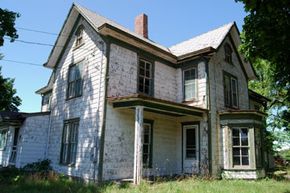In the days of underwater mortgages and funky home financing, inheriting a house can be as much of a curse as it is a blessing. If you're personally attached to the property -- say you grew up in it or got married there -- it can be difficult to make a logical decision about the best course of action. Most experts recommend selling the house and increasing your personal capital. So even though your emotions are important, you'd be wise to let your finances dictate what you should do with it.
But what if you're not sure what you want to do with your inherited house or even how to begin making that decision? While many people love the idea of inheriting a chest full of antique jewelry, collectibles like classic cars or artwork, or even a long-lost aunt's fortune, figuring out what to do with something as large as a house can take you down a long, bumpy road. On the next page, you'll find some things to think about during your journey.
Advertisement



